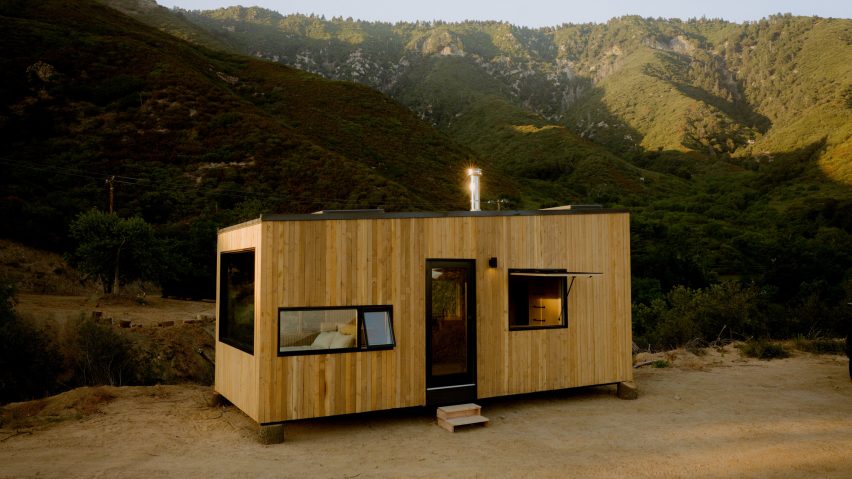
Find Sanctuary to launch California glamping site geared toward remote work
A Los Angeles entrepreneur is launching a glamping site in California that aims to attract urban professionals who want to commune with nature.
Find Sanctuary was founded last year by entrepreneur Charlie Hammond, who has worked at various startups and is a proponent of getting outdoors to help alleviate mental health issues.
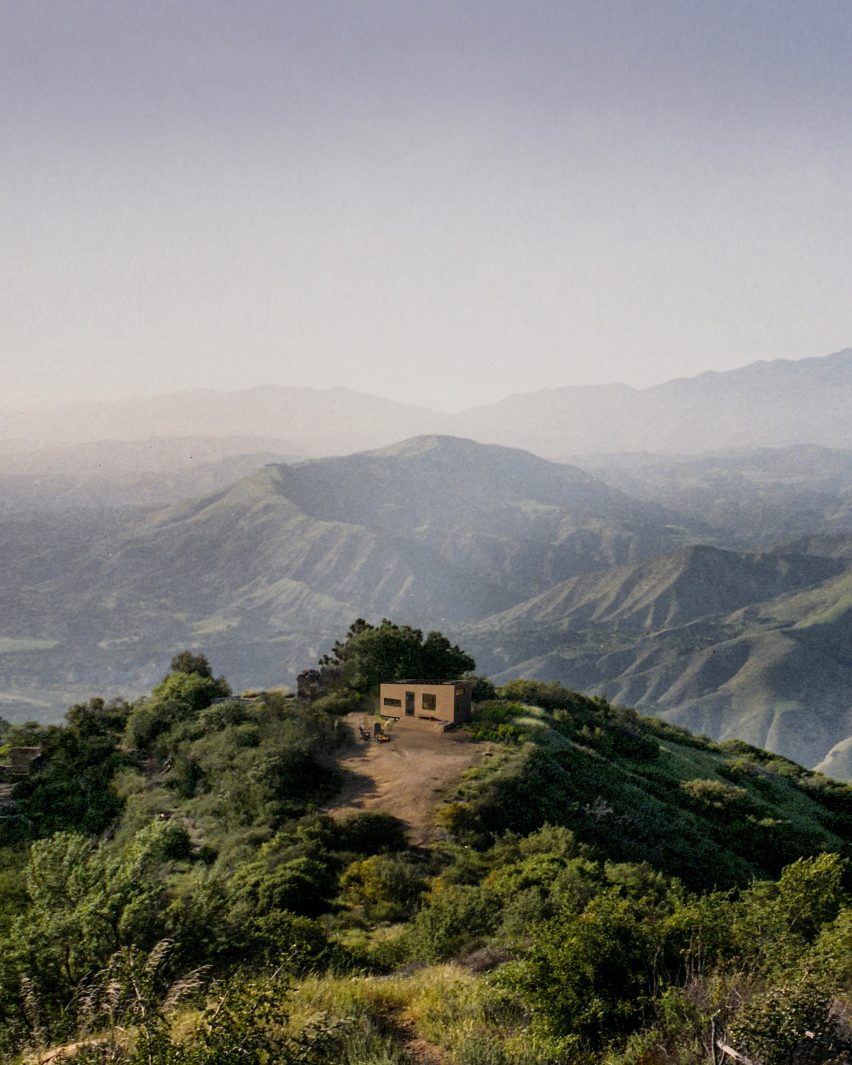
Hammond decided to build glamping sites near urban centres that will offer tiny cabins equipped with creature comforts such as electricity, running water and wireless internet service.
The sites will be geared toward urban dwellers, busy working professionals and companies seeking nature retreats for offsite work and meetings.
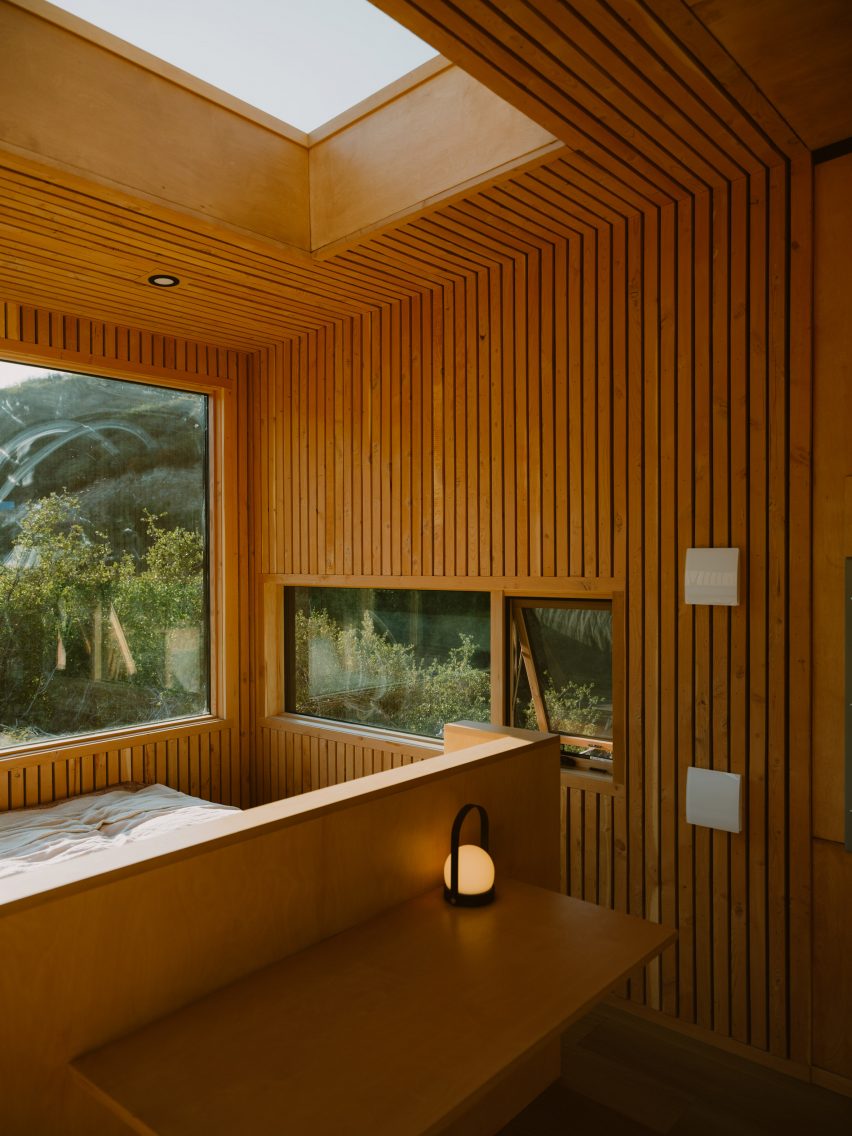
The goal is to merge the restorative benefits of off-grid retreats with modern amenities.
"The luxury micro-cabins offer an unparalleled setting for remote work or simple leisure, allowing guests to immerse themselves in nature while staying connected to the modern world," the company said.
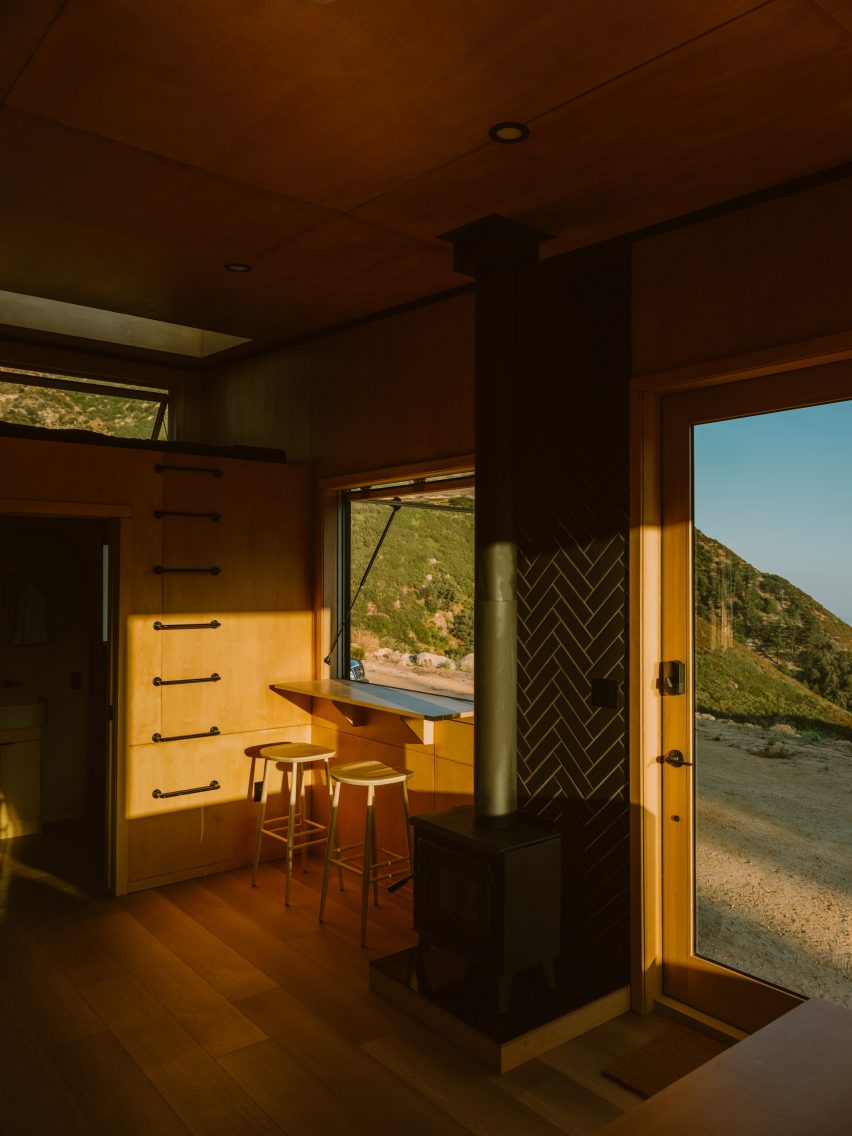
The first site – which will offer 40 cabins – will be located in Big Bear, a scenic area that lies 100 miles northeast of LA.
Find Sanctuary has built a pilot cabin and is running a beta test at the site in which guests' cortisol levels are measured pre- and post-stay to "determine the retreat's impact on wellbeing and stress levels".
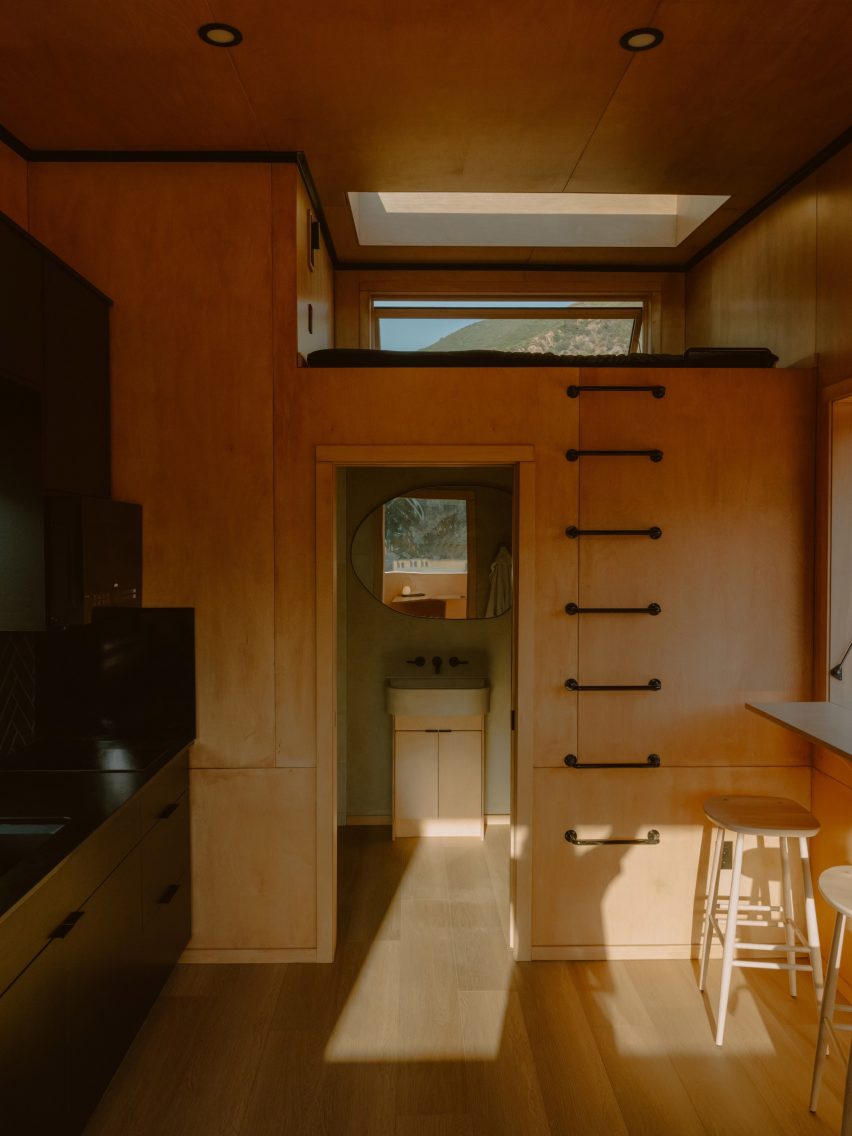
The 322-square-foot (30-square-metre) rectangular cabin was conceived by Hammond with the help of designer friends. For interior elements, the team worked with San Francisco's Narrative Design Studio.
The wood-framed unit has a steel base and a powder-coated metal roof. Facades are clad in Douglas fir, and windows, several of which are operable, are framed with black metal.
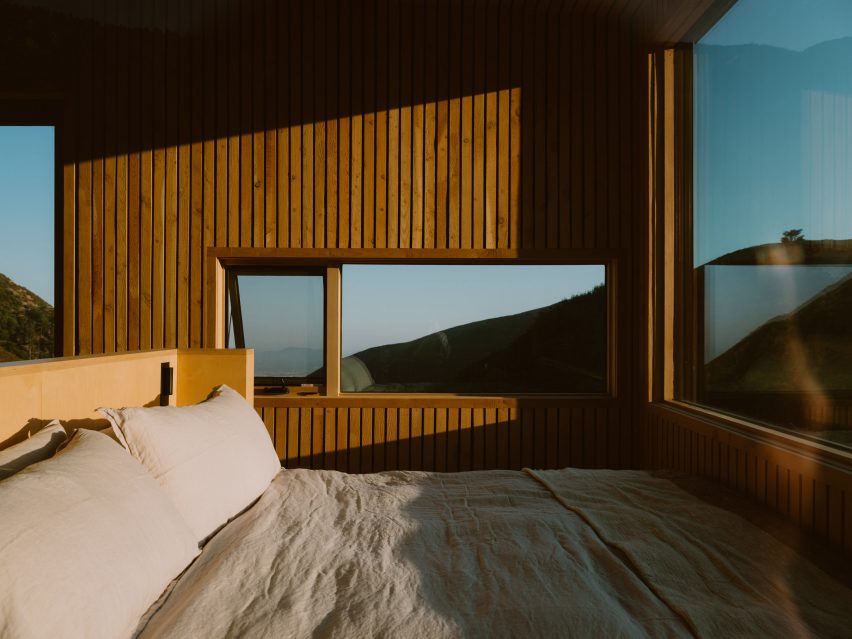
The cabins are lifted up to two feet off the ground and rest on low-impact, helical screw piles. For the pilot cabin, tree stubs were placed around the piles to enhance their appearance.
Within the compact cabin, a sloped ceiling rises 13 feet (3.9 metres) at its highest point, helping the space feel airy and more expansive.
The central portion of the dwelling holds a kitchen, a bar-style dining area and a wooden desk.
To one side is a bathroom with a skylit rain shower and a loft-style reading nook with a queen-size Japanese tatami mattress.
To the other side is a sleeping area with a California king bed and dual-side entry.
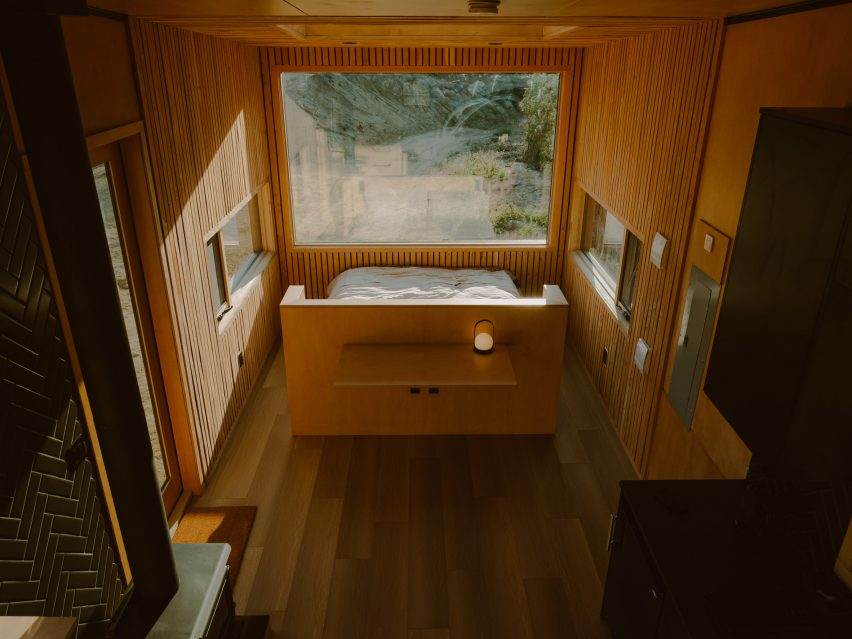
Interior finishes include light-stained Baltic birch plywood, which was used for surface cladding and custom built-in furniture.
Each cabin will be equipped with a wood-fired stove that is robust enough to warm a much larger space. For those not inclined to light a fire, there is a mini-split system that offers both heating and cooling.
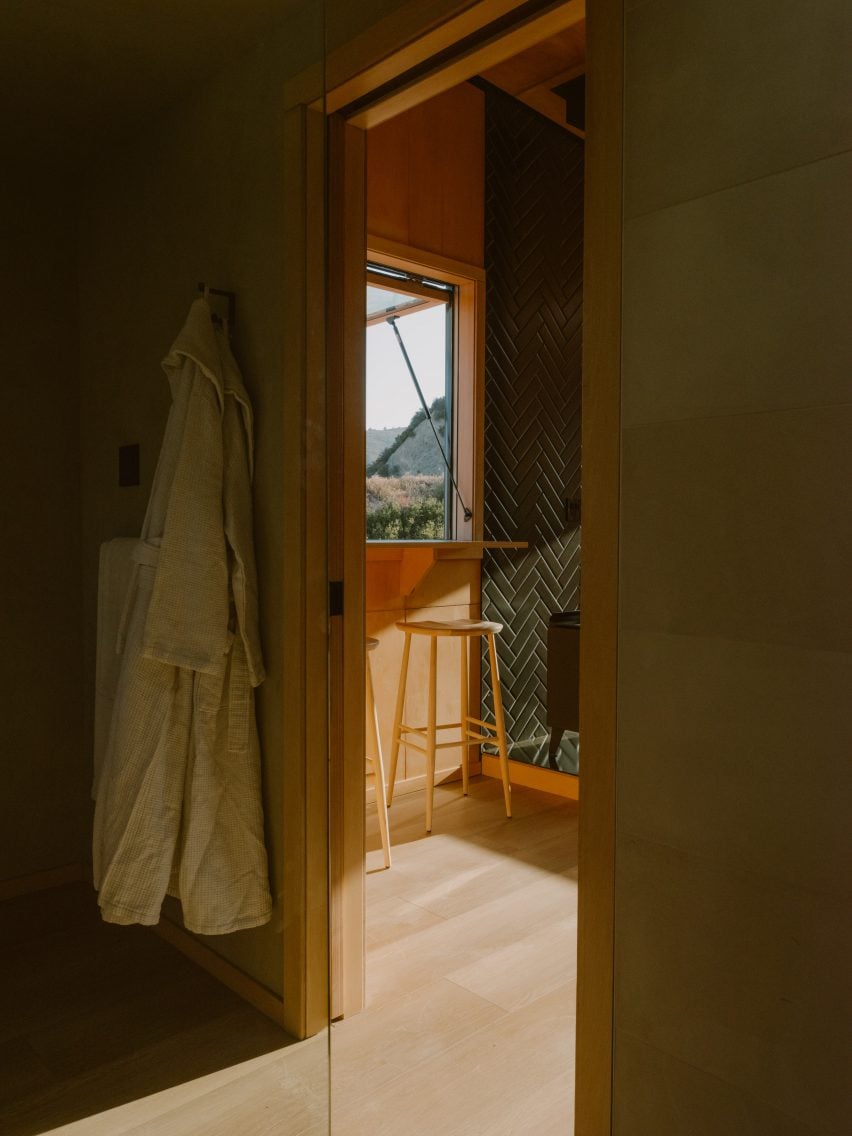
The cabins will have running water and electricity that comes from either public utilities or on-site solutions like wells and solar panels. The company will install a cell tower and create a wi-fi network for the property.
In addition to the sleeping cabins, Find Sanctuary plans to introduce office cabins that will serve "as a collaborative think space".
"Find Sanctuary was born out of necessity, acting as a supplemental tool to manage my own struggles with mental health."
Hammond added that "digital-detox" retreats can be a valuable experience for some, but they tend to be used in times of crisis. They are "an unrealistic solution and are difficult to access on a regular basis".
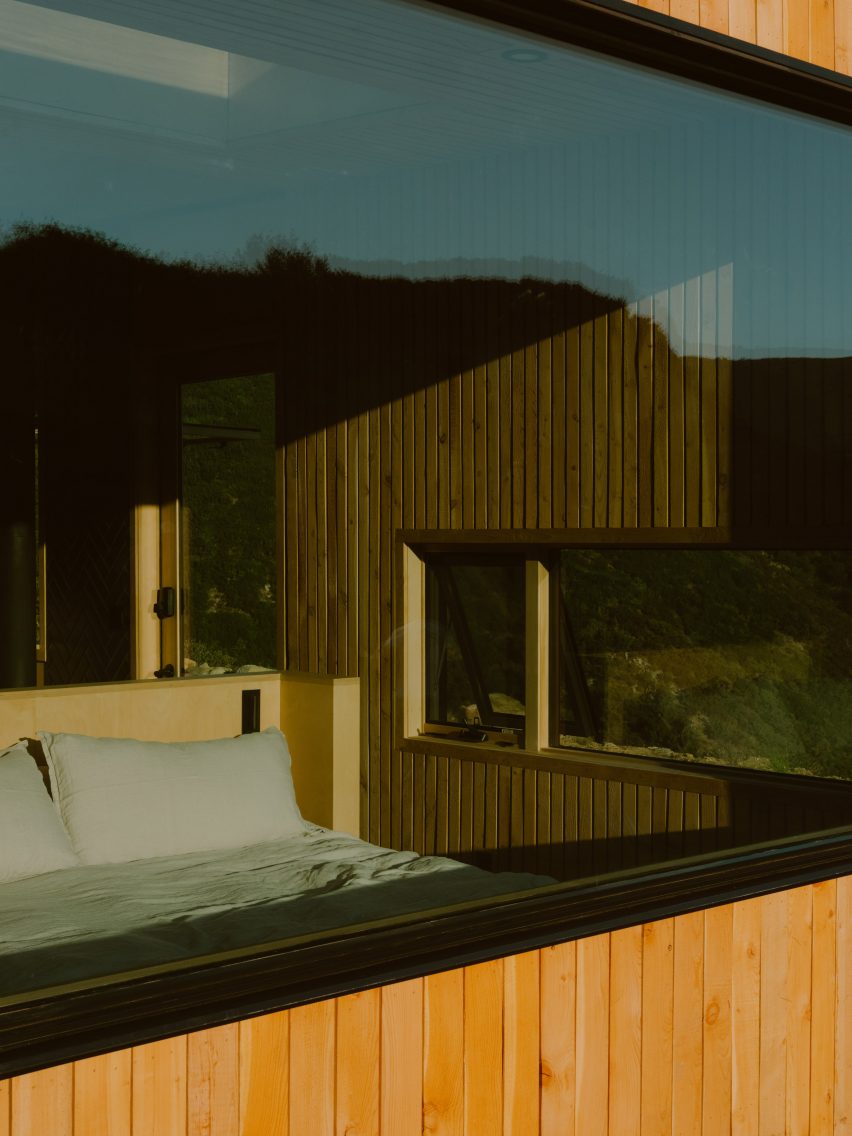
Even though no sites are open yet, Find Sanctuary has already drawn bookings from more than two dozen companies. Beyond Los Angeles, the company – which is backed by angel investors – hopes to open sites near New York City and San Francisco.
Other glamping sites include an AutoCamp property near Joshua Tree National Park that features Airstream trailers and a clubhouse informed by Quonset huts and a luxury campground in Oregon that offers furnished cabins, a fitness centre and an indoor saltwater pool.
The photography is by Jared Chambers unless otherwise noted